Looking after a family isn’t easy – what with balancing work and home life, making sure everyone’s fed and clothed and gets to nursery or school on time and trying to make your money last to the end of the month, there’s a lot to think about! And if you’re struggling to make ends meet and trying to save money around the home, chances are tackling climate change isn’t your number one concern. But the good news is, going green doesn’t have to be difficult or expensive. Check out our tips for saving money, saving the planet and boosting your family’s wellbeing, all in one. Win win win!
What is climate change?
Climate change and nature loss are the greatest threats facing the world’s population. Climate change isn’t a distant, far away problem: it’s here in Scotland and we’re seeing the impact already, through extreme weather events such as heatwaves, flooding and high temperatures during winter.
This may seem daunting, and you’re probably wondering how your family can possibly help tackle something so big and global. But by working together, supporting each other and all getting involved – government, organisations, communities and individuals alike – we can take action against climate change. And if we all keep introducing small changes to the way we do things, this will make a big difference over time.
So here are our top tips for green ways to save money – good for the planet and your pocket!
Tips for saving money and the planet if you have a baby
If you have a new baby, alongside dealing with all the day to day things like sleeping and feeding, you may also have found yourself wondering what kind of world they’ll grow up in. Here are some simple things you can do to help make that world a better place – and save some money as well.
Tip #1: Get outdoors
Getting outside is great for your baby’s health and can even help them sleep better, which is good news for everyone! Fresh air is also good for boosting your mental health, helping you clear your head and feel calmer and less stressed. But spending time outdoors is also important for helping your baby grow up feeling connected to nature. The sling in your Baby Box can help make getting out and about easier.
Our page on having fun outdoors with your baby has lots of ideas for things you can do together outside that won’t cost the earth.
Tip #2: Choose breastfeeding if you can
Breastfeeding is the cheapest, most sustainable way to feed your baby and is the best thing you can do for your baby’s health, and yours – you can find out more about the benefits here and find a support group near you here. However, we know breastfeeding isn’t for everyone, and if you use formula there are still things you can do to help the planet, like avoiding ready-mixed bottles, buying larger cans of powder and recycling the packaging.
Tip #3: Use reusable nappies
Did you know that choosing reusable nappies can also save you up to £600 or more compared to the cost of disposable? And with 8 million disposable nappies going to landfill each day in the UK, using cloth nappies is also a good way to take some positive action for our future. They’re also comfy for baby and are leak and poonami proof. You can read more about reusable nappies here.
Use the voucher in your Baby Box to get started for free and check Facebook to see if there's a reusable nappy group near you offering advice and support.
Tip #4: Toys don’t have to cost the earth
Your baby’s favourite plaything is you, so the best gift you can give them is your attention! You can find out more about the little things you can do to help your baby feel connected here. While some toys are great for helping babies develop their physical skills and get their wee brains thinking, you don’t have to fork out lots of money on expensive plastic toys. Simple things you find around the house – like wooden spoons and boxes –make great toys. You can find more ideas for fun games to play with your baby here.
Tip #5: Dress for money saving success
Do you sometimes feel that your baby has more clothes than you, but only ever wears a onesie? One way you can save money is to only buy the clothes they really need – and getting these second-hand will save you even more! See if you can get outgrown clothes from friends or family, or check out sites like Kidclo, Loopster or myTOT. Some sites, like Graceful Changes, offer a subscription service so you can rent clothes for your baby and return them when they’ve grow out of them!
Once your wee one has outgrown something, instead of binning it, try swapping, donating or selling it. And if you’re worried about stains (on your clothes or your baby’s), this video from Love Your Clothes shows you how to tackle the toughest baby messes.
Tips for saving money and saving the planet if you have a toddler
At this age your toddler is starting to notice what you do and copying your behaviour – so this is a great time to start encouraging habits that save money and reduce our impact on the environment.
Tip #1: Get closer to nature
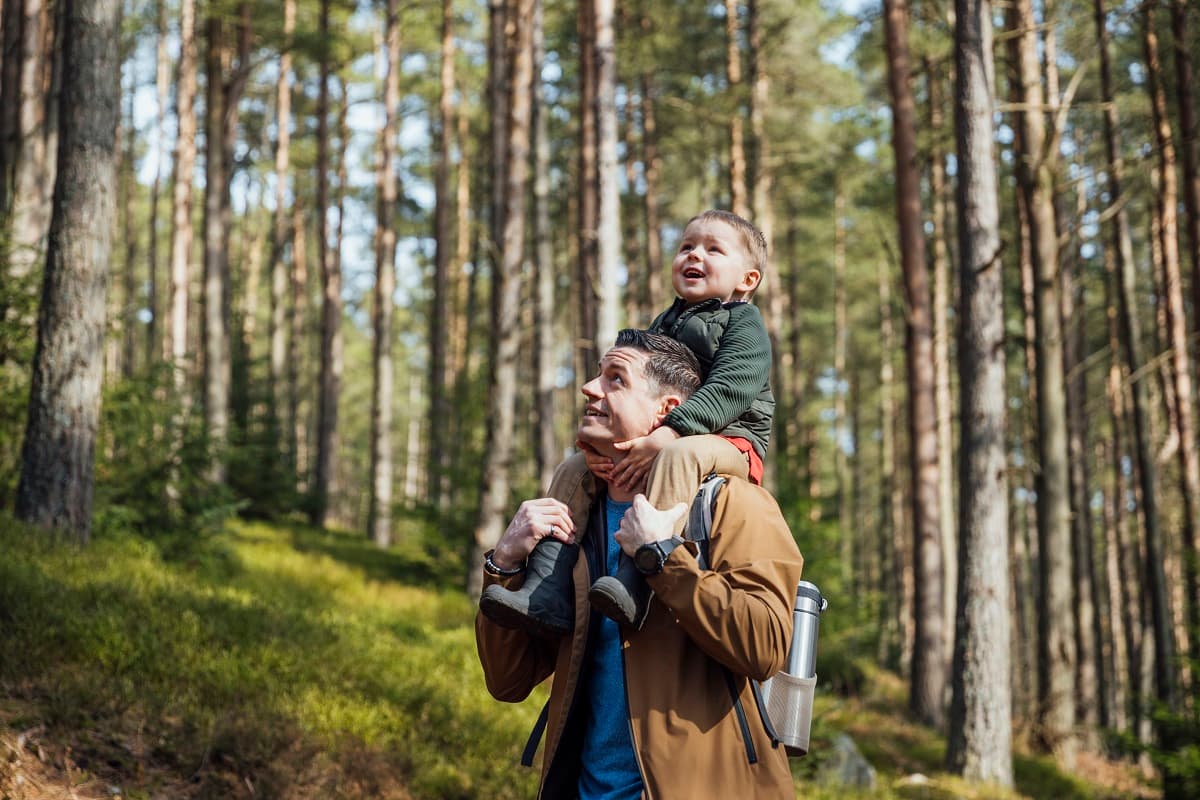
Toddlers can be curious and full of energy, so now’s a great time to get out and about and start learning about nature. Here are some ideas to get your toddler interested in the natural world, and keep them entertained for free:
- When you’re out for walks together, try pointing things out to them, like trees, birds, insects and animals – you even could try downloading an app to help you identify them.
- Talk to them about what happens when the seasons change – can they find daffodils in spring, collect conkers in autumn or jump in frozen puddles in winter?
- You could also try growing seeds indoors, in a window box or in the garden if you have one. How about growing something you can eat, like cress or lettuce? This article from the BBC explains how to grow plants from seeds you can find in your kitchen cupboards!
- Take them to a 'pick your own' farm so they can see how fruit and veg get from the soil onto their plate.
- Collect leaves, pine cones, acorns and other natural objects to make a nature box at home.
You’ll find lots more ideas on our page on having fun outdoors with your toddler and on the Scottish Wildlife Trust website. This map from Ordnance Survey will help you find green spaces near you to explore.
Tip #2: Set a good example by saving energy around the home
There are lots of little things you can around the house to save money and energy and reduce your impact on the environment.
- Turn off lights and other electrical equipment when you’re not in the room.
- Try not to leave appliances on standby – switch them off completely when you’re not using them.
- Don’t leave the tap running while you’re brushing your teeth and take short showers to save water.
- Put on a jumper rather than cranking up the heating.
- Do your washing at 30 degrees – this is hot enough to get everything nice and clean!
- Use cheap eco-friendly products like vinegar and lemon juice for cleaning – this article shows you how.
Tip #3: Swap toys or buy second-hand
Toys are expensive, and for every much-loved teddy or action figure that goes everywhere with them, there are many more neglected toys stuffed into cupboards or tripping you up on the floor. Instead of buying new, how about swapping toys with friends or joining a toy library (check your local authority’s website to see if there’s one near you) or buying second-hand? Our guide to saving money by shopping second-hand has advice on getting good value. If you are buying new, try to buy toys made from sustainable or biodegradable materials instead of plastic. If you’re buying a gift, how about choosing a book instead?
Remember that often children want to play with the box more than the toy, so why not try making play things from items in your recycling instead of buying something new? You’ll keep them busy, save money and reduce your impact on the environment – bonus! You can find lots of ideas for crafty makes on our page on things to do indoors with your toddler.
Tip #4: Reduce food waste
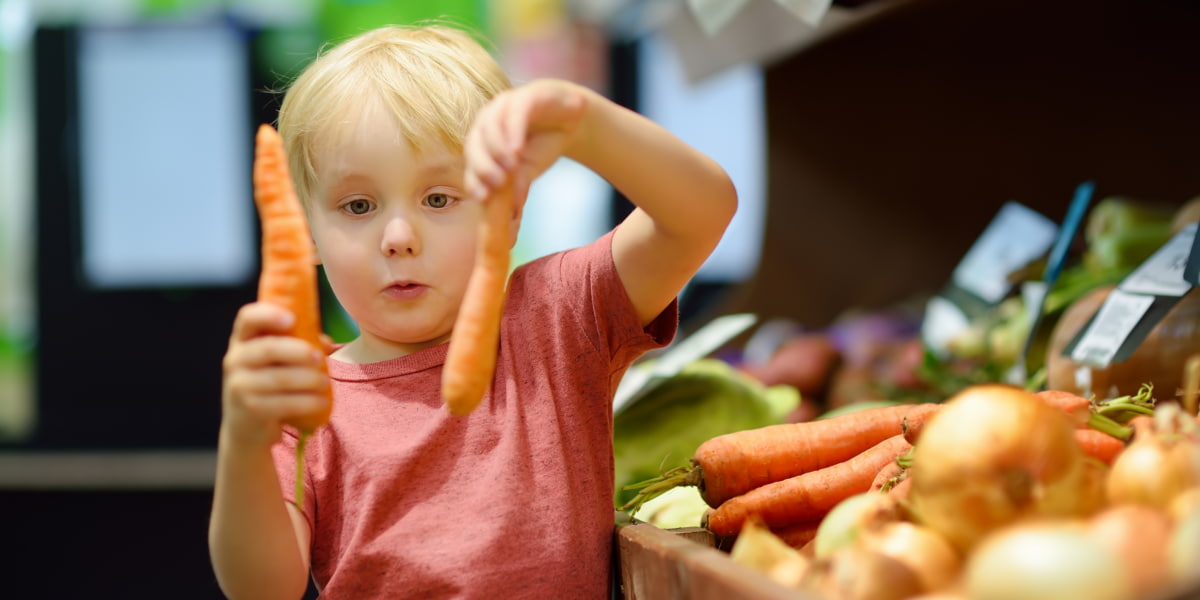
Did you know in Scotland each household wastes on average £39 a month by throwing away food and drink we’ve bought? Planning meals can help save some of this waste, and save you money too. Of course, we know toddlers can be notoriously picky about food, so our page on fussy eaters has lots of tips to help you end meals with clean plates, and less waste food contributing to gas emissions. Our page on filling tummies on a budget also has information on freezing foods to prevent waste and saving money by substituting veggies for meat.
Tip #5: Toddler style
At this age they grow so fast it can feel as if you’ve only just got them a new coat, hoodie or pair of shoes before they’re bursting out of them! But by buying second-hand from charity shops or online stores like Oxfam, you can save yourself some money, and help save the planet. Fashion is the fourth most polluting industry in the world, so the more times a T-shirt, pair of jeans or coat can be worn, the better.
Turn a trip to a charity shop into a treasure hunt with your wee one as you look for bargains, or get them to help you choose items online – if they grow up knowing that buying preloved is fun, they’ll be more likely to continue shopping sustainably when they’re older. Swapping or selling their outgrown clothes online is another great way of saving money and the earth’s resources.
Tips for saving money and saving the planet if you have a child
Once your child starts school, they may start asking more questions about the world and what we can do to protect it. They may have heard about things like climate change, pollution and deforestation, and they may be worried about the future. Our page on talking to your children about climate change has advice on how to explain the issues and reassure them that it’s not too late to take action.
Here are some things you and your child can try together.
Tip #1: Try active and sustainable travel
Walk, wheel, scoot, cycle or catch the bus instead of taking the car – it’s good for the planet, and good for you, and saves on petrol! If your child complains about walking being ‘boring’ why not play a game on the way, like I-spy or counting things together, like bicycles, trees or dogs? Our page on keeping the kids happy out and about has more tips.
Replacing car journeys with bus travel can help reduce CO2 emissions by 42% – and what’s more, all 5-21 year olds can travel by bus in Scotland for free with the Young Persons’ (Under 22s) Free Bus Travel Scheme. You can find out more at the Freebus.scot website.
Tip #2: Outdoor adventures
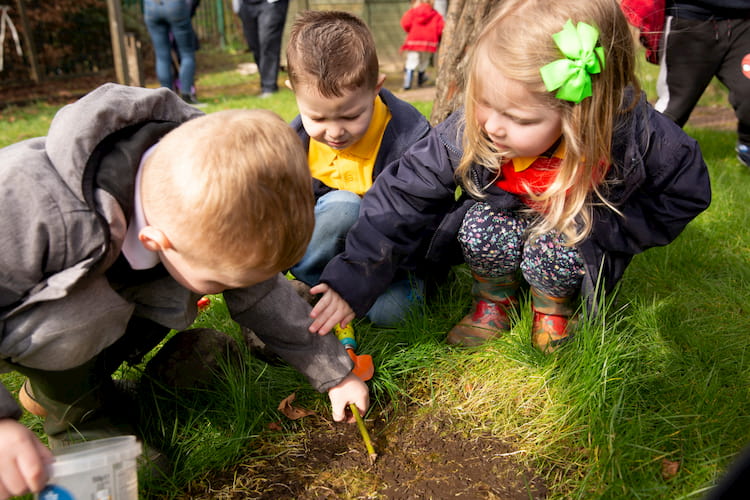
Try to get outdoors with your child as much as you can – this boosts everyone’s wellbeing and helps you feel more connected to the natural world. As they get older, time spent outdoors can also be an opportunity to talk about environmental issues too. Is the beach covered in litter? Is the park overgrown? What can you do about it? How about joining a beach clean up, litter pick or community gardening group? The whole family can feel good about helping out, and you’ll save money you might have spent on other weekend activities. The Keep Scotland Beautiful website has more ideas, while the Paths for All website has suggestions for things you can do when you’re out and about to help tackle climate change.
Tip #3: Natural crafts
Plastic craft items like pipe cleaners and googly eyes are fun but they generate a lot of non-biodegradable waste. So why not try to cut down on how often you use these kind of items and use natural materials like leaves, pine cones and conkers instead? You’ll literally find them lying around outdoors for free! The Scottish Wildlife Trust has lots of ideas you can try.
Tip #4: Vintage style
At this age your child may be getting more interested in what they wear. Encourage them to look for clothes in charity shops and vintage stores, or swap clothes with friends (with their parents’ permission of course!) Reusing or recycling clothes is not only better for the planet, but it’s cheaper too.
You could also try selling their clothes online when they grow out of them, handing them on to a friend or donating them to a charity shop to prevent them ending up in landfill. If they wear holes in their clothes, how about covering the hole with a cool patch instead of throwing the garment away?
You can get advice for spotting a second-hand bargain, mending and upcycling and even sourcing preloved school uniform at the Love Your Clothes website.
Tip #5: Eat greener
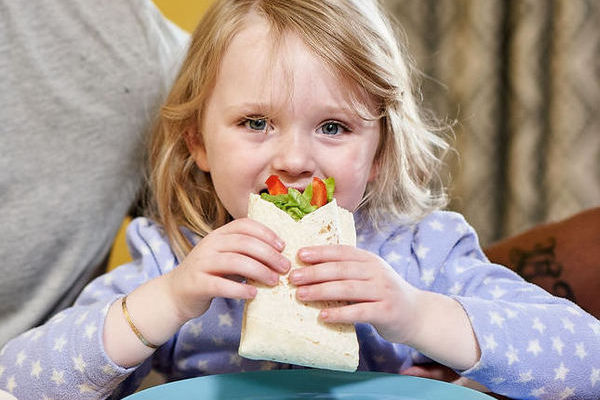
It’s never too soon to get the kids involved in greener eating. For example, you could ask them to check food labels when you’re out shopping to see where items come from and choose local produce if you can. You could also get them to help you cook some tasty veggie recipes. If they help cook it, they’re more likely to eat it, reducing waste and saving money. You can get more tips for eating greener on the Net Zero Scotland and Love Food Hate Waste websites.
Tip #6: Help inspire other people
One fun, free activity you can do with your child is to have a think about what changes you could both make to help the planet, and then share this with someone else, like other family members or friends.
You could use these cute posters from Net Zero Scotland to get some ideas, and then colour them in and put them up in your windows to inspire your friends and neighbours.
There are four free posters to colour, focusing on different things we can do to help the planet:
- Walk, cycle or take the bus to school
- Turn lights and appliances off
- Reduce, reuse, repair
- ‘To help the planet, I…’ (you can add to this poster with the things your family can do)
By committing to do something to help tackle climate change and then sharing it with other people, we can create a ripple effect of positive actions that could help the planet and ourselves feel good. So you’ll be saving money on activities, keeping your child busy and doing something good for the planet – result!
Tips for saving money and saving the planet if you have a teen
At this age, your teen will probably make their own mind up about what they’re prepared to do to protect the planet. They may be a budding Greta Thunberg, passionate about tackling climate change or they may not seem that bothered. They may feel anxious, frustrated or angry about the damage we are doing to our world. Our page on talking to your children about climate change has advice on how to explain the issues, reassure them and encourage them to take action.
Tip #1: Be supportive and listen
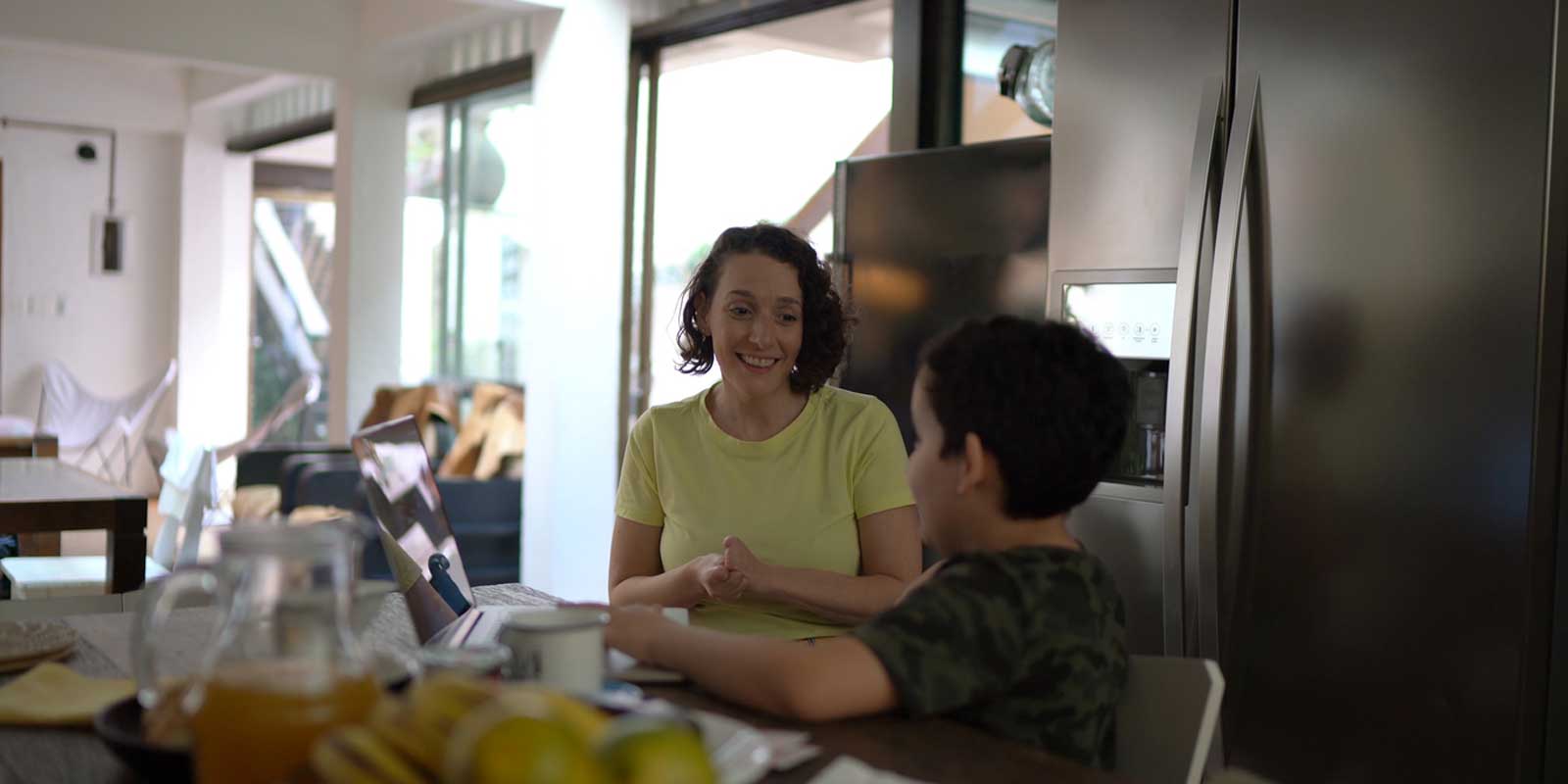
Make sure they know you’re there for them if they want to talk. You may find your teen is far more knowledgeable about climate change than you are – so make the most of this and see what you can learn. Or you may want to start the conversation yourself – the Young Minds website has helpful tips for creating a relaxed space to chat together, for example, when you're cooking together or out for a walk.
Whoever starts the conversation, make sure you really listen to what they have to say and take them seriously. If they’re keen for your family to live more sustainably, be prepared to follow their lead – it could save you a lot of money! If their ideas seem impractical, maybe you can find a compromise. If you’re not sure they’ve got their facts right, rather than contradicting them, how about suggesting you do some online research together?
Tip #2: Suggest things they can do to help the planet
If your teen needs a bit of encouragement, or feels powerless in the face of the climate emergency, reassure them that there are lots of things young people can do to reduce their impact on the planet and raise awareness of the issues. If they try an activity that gets them outdoors in the fresh air, connecting with nature, all the better! The NatureScot website has ideas for volunteering in the outdoors.
Tip #3: Dressing green
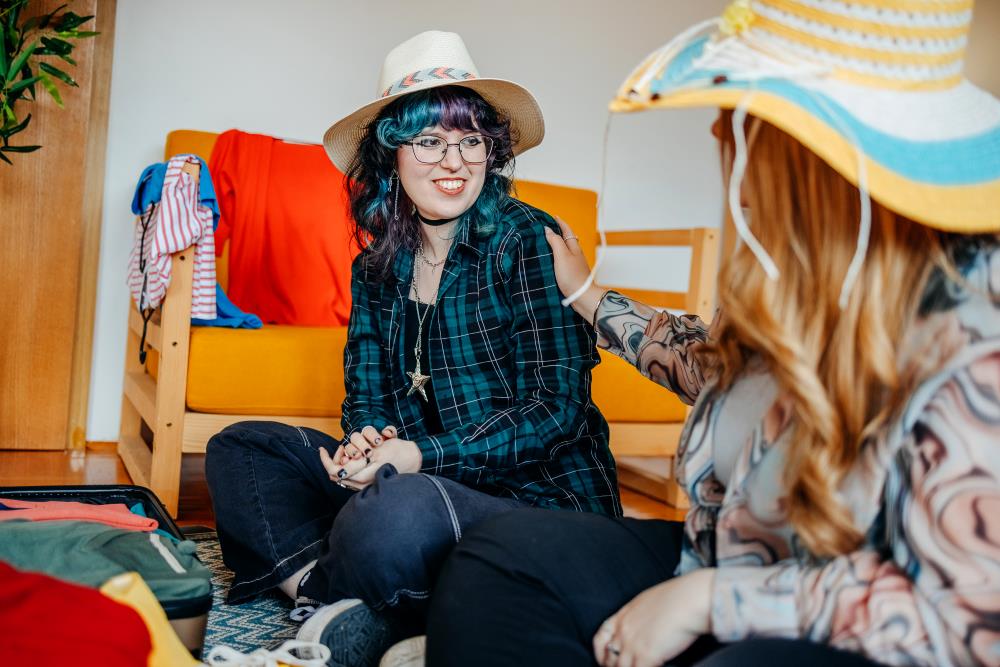
Did you know that every year in the UK around 336,000 tonnes of clothing are thrown in the bin? And that 40% of people own clothes they’ve never worn? How your teen buys and disposes of their clothes can make a big difference to the planet – and save them a lot money too!
Encourage them to find preloved treasures in charity shops, vintage stores or online at sites like Depop and Vinted or swap with friends. For a really dressy occasion like a prom, how about renting a dress or suit for the evening? And instead of binning unwanted items, why not suggest they recycle, swap, donate or sell them?
Tip #4: Sort and sell
If your teen’s complaining about being short of money, how about persuading them to have a clear out? Ask them to sort through their old toys, books, tech equipment and clothes and divide them into piles – keep, sell, donate to charity, recycle. They might be surprised at home much money they can make from old phones or clothes. For more on reusing and recycling, check out the tips on the Zero Waste Scotland website
Tip #5: Lead by example
Teens often like to rebel against their parents, but if they see you being careful to save electricity and water, reducing, reusing and recycling wherever you can and opting for active travel, they’ll be more likely to adopt these behaviours too, and to carry on with them when they leave home.
Where can I find out more?
- The World Wildlife Fund’s (WWF) footprint calculator helps you work out how sustainable your lifestyle is. You could try asking your child to help fill it in, and then look at ways you can reduce your carbon footprint together.
- Download Your Child and Our Future – a Guide to Parenting Sustainably for more tips for reducing your impact on the planet.
- Check out Zero Waste Scotland’s recycling guide to find out what you can recycle where. You can also find ‘how to’ guides with tips for living more sustainably here.
- NatureScot has lots of information on how you can connect with nature in your local area, volunteer in the outdoors and get involved in community projects. You can also use their map to find a country park near you.
- You can find more sustainable living tips on the Net Zero Nation website.
- If you’re feeling inspired to take action but aren’t sure where to start, this quiz on the Net Zero Nation website can help you find actions that work for your family.
Help with money
We all know that being a parent can cost a lot of money. If you’re struggling to make your money last to the end of the week/month or are worried about how you’ll pay your bills, you’re definitely not alone! The Money Talk Team are a great resource for helping parents make their money go further and making sure that you’re not missing out on support you’re entitled to.
 Activities & Play
Activities & Play Behaviour
Behaviour Childcare
Childcare Development & Growing Up
Development & Growing Up Family, Friends & Relationships
Family, Friends & Relationships Feeding Your Baby
Feeding Your Baby Food & Eating
Food & Eating Health & Safety
Health & Safety Mental Health & Wellbeing
Mental Health & Wellbeing Money & Work
Money & Work Online Behaviour & Safety
Online Behaviour & Safety Pregnancy & First Days
Pregnancy & First Days School & Education
School & Education Sleep
Sleep

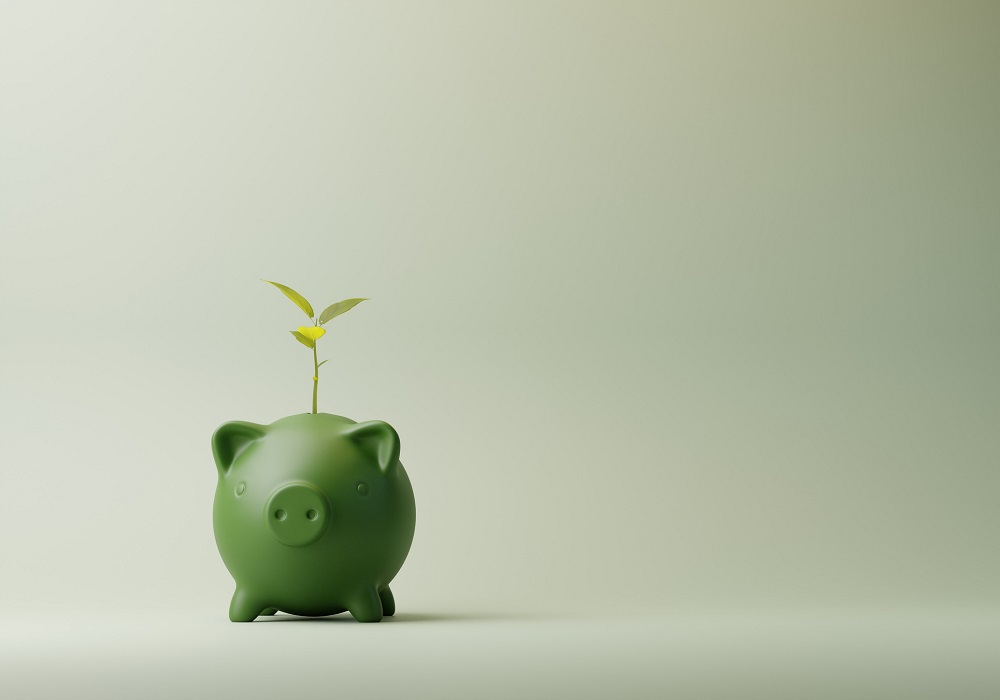
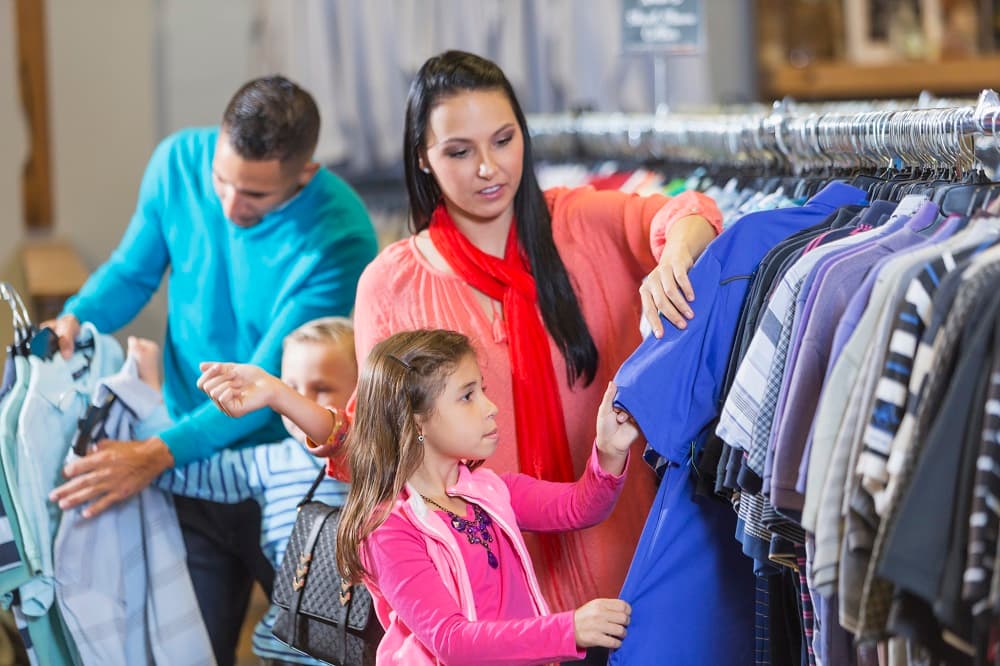

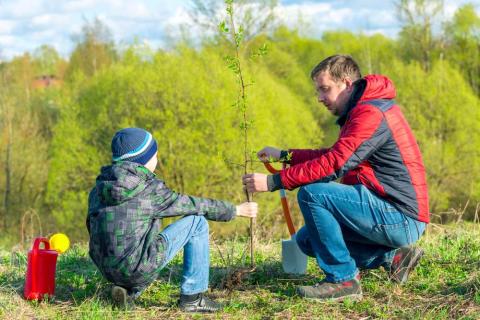
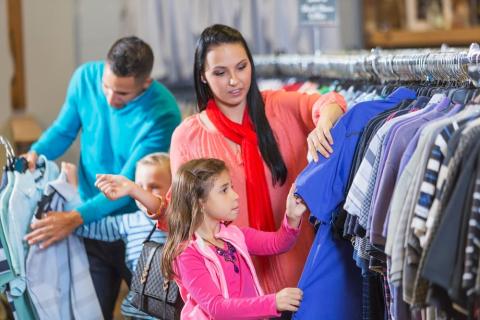



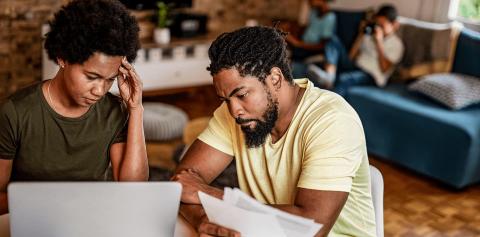
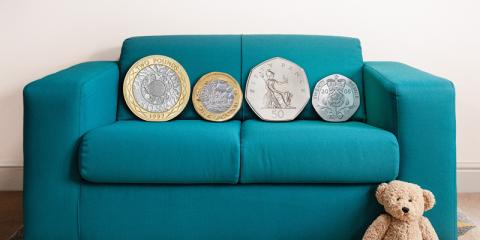
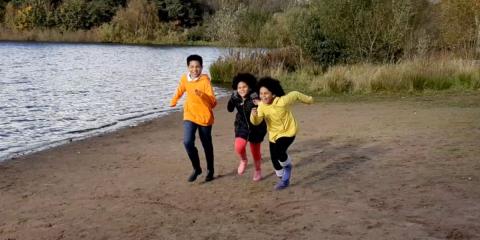
 Childcare
Childcare
 School & Education
School & Education